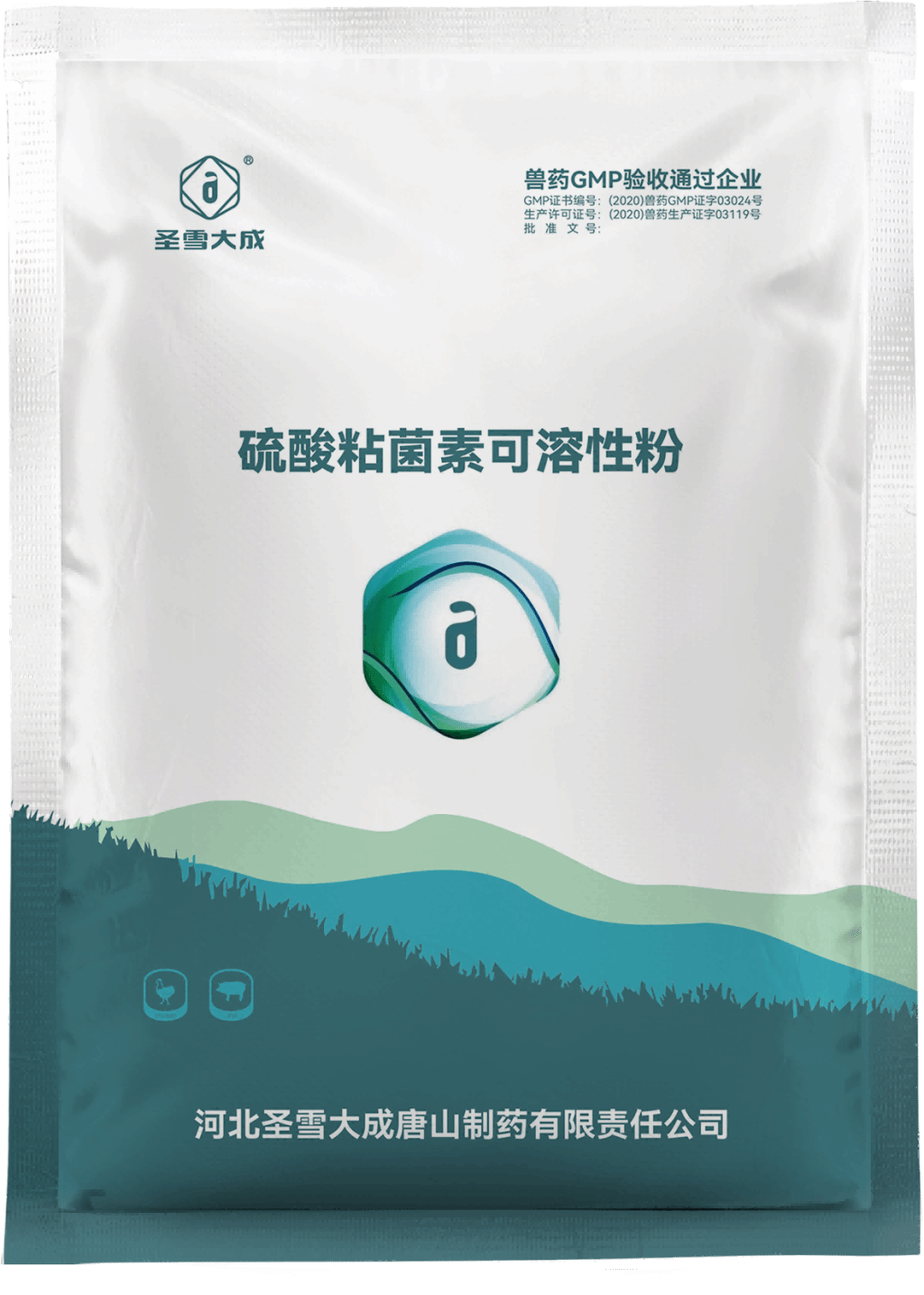Tel:0086 18231198596

News
Current Position:
Home >
News
>Beyond Antibiotics: Colistin Sulfate Soluble Powder in Holistic Animal Care.
Beyond Antibiotics: Colistin Sulfate Soluble Powder in Holistic Animal Care.
TIME:2024-01-15
Understanding Holistic Animal Care:
Holistic animal care goes beyond the traditional disease-centric approach. It involves considering the entire life of the animal, focusing on preventive measures, nutrition, stress reduction, and overall well-being. In this context, antibiotics play a role not only in treating infections but also in supporting a comprehensive approach to animal health.
Colistin Sulfate Soluble Powder: Mechanism and Application:
Colistin sulfate, a polymyxin antibiotic, disrupts the cell membranes of Gram-negative bacteria. In its soluble powder form, it provides a practical means of administration in feed or drinking water. Beyond its conventional use in treating bacterial infections, colistin sulfate can be integrated into holistic animal care practices.
Preventive Strategies in Holistic Animal Care:
a. Oral Administration for Prophylaxis:
Integrating colistin sulfate into oral administration methods for prophylactic purposes helps establish a preventive barrier against bacterial infections. This is particularly relevant in settings where the risk of exposure to pathogens is high.
b. Incorporation into Feed Additives:
Including colistin sulfate in feed additives contributes to preventive strategies, supporting animal health by minimizing the risk of bacterial infections. This approach aligns with holistic principles that prioritize proactive measures over reactive interventions.
Sustainable Farming Practices:
a. Reduced Reliance on Antibiotics:
In holistic animal care, there is a growing emphasis on reducing the reliance on antibiotics. While colistin sulfate has therapeutic benefits, employing sustainable farming practices helps minimize the need for routine antibiotic use, promoting overall farm resilience.
b. Integrated Pest Management:
Holistic approaches often involve integrated pest management to control vectors and reduce stressors on animals. By addressing these factors, the need for antibiotics, including colistin sulfate, can be minimized.
c. Nutritional Strategies:
The holistic paradigm considers nutrition as a key component of animal health. Optimal nutrition enhances the immune system and reduces the susceptibility to infections, complementing the role of antibiotics in preventive care.
Holistic Animal Welfare:
a. Stress Reduction:
Stress is a significant factor affecting animal health. Holistic animal care emphasizes stress reduction through improved living conditions, proper handling, and reduced exposure to environmental stressors. Antibiotics, when necessary, can contribute to addressing stress-related health issues.
b. Behavioral Considerations:
The holistic approach considers behavioral aspects, recognizing that animal well-being is not solely dependent on physical health. Minimizing the use of antibiotics, except when essential, aligns with ethical considerations related to animal welfare.
c. Natural Health Practices:
Integrating natural health practices, such as herbal supplements and holistic veterinary care, complements the use of antibiotics when needed. This balanced approach prioritizes the overall health and happiness of animals.
Challenges and Considerations:
a. Antibiotic Resistance:
The challenge of antibiotic resistance remains pertinent. Holistic animal care seeks to address this concern by minimizing routine antibiotic use and employing alternatives when possible.
b. Balancing Preventive Measures:
Achieving a balance between preventive measures and necessary interventions is essential. While antibiotics like colistin sulfate have preventive potential, their use should be judicious to prevent unintended consequences.
c. Public Perception:
Public perception of antibiotic use in animal agriculture is a consideration in holistic practices. Transparent communication about the reasons for antibiotic use and a commitment to responsible practices are crucial.
Alternatives and Complementary Approaches:
a. Probiotics and Prebiotics:
Integrating probiotics and prebiotics into animal nutrition supports gut health and the microbiome. These alternatives complement the use of antibiotics, contributing to holistic strategies for preventive care.
b. Herbal Supplements:
Herbal supplements with antimicrobial properties can be explored as alternatives or complements to antibiotics. Research into natural compounds aligns with holistic principles of minimizing synthetic interventions.
c. Vaccination Programs:
Holistic animal care emphasizes preventive vaccination programs to reduce the reliance on therapeutic antibiotics. Vaccines play a vital role in building immunity and preventing infectious diseases.
Educational Initiatives:
a. Farmer and Veterinarian Training:
Education and training programs for farmers and veterinarians play a pivotal role in implementing holistic animal care practices. This includes understanding the judicious use of antibiotics and incorporating alternative approaches.
b. Public Awareness Campaigns:
Public awareness campaigns can help bridge the gap between holistic animal care practices and consumer expectations. Clear communication about responsible antibiotic use and holistic approaches fosters understanding.
Future Directions:
a. Research into Alternatives:
Continued research into alternatives to antibiotics and holistic approaches is crucial for the future. This includes exploring novel therapies, probiotics, and sustainable farming practices.
b. Global Collaboration:
Holistic animal care transcends geographical boundaries. Global collaboration and knowledge-sharing contribute to the development of standardized practices and ethical considerations.
c. Policy Integration:
Integrating holistic principles into agricultural policies and regulations supports the adoption of responsible practices. Governments can play a role in incentivizing holistic approaches and sustainable farming practices.
Conclusion:
The integration of colistin sulfate soluble powder into holistic animal care practices marks a shift from a narrow focus on disease treatment to a more comprehensive approach that prioritizes prevention, sustainability, and overall animal welfare. As the agricultural landscape evolves, embracing holistic principles in animal care aligns with societal expectations for responsible and ethical farming practices. By recognizing the multifaceted nature of animal health and considering alternatives to routine antibiotic use, the journey from the lab bench to holistic animal care represents a step forward in creating a sustainable and resilient future for agriculture.

 CONTACT
CONTACT




